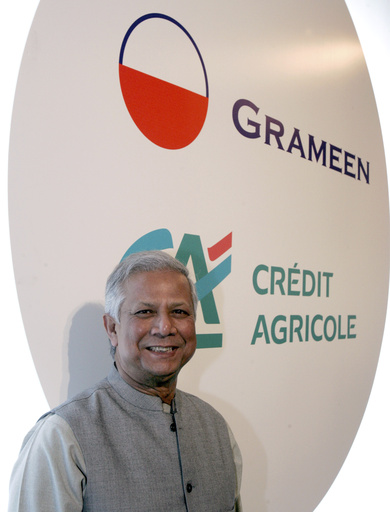In the wake of Bangladesh’s prime minister resigning amidst violent protests, speculation is rife about who might lead as a caretaker until new elections are called. One prominent figure being touted for this role is Muhammad Yunus, a Nobel laureate renowned for his work with the underprivileged and a vocal critic of the outgoing leader.
Sheikh Hasina’s ouster followed weeks of turmoil over a contentious quota system for government job allocation, which morphed into a broader outcry against her 15-year tenure characterized by economic progress tinged with authoritative governance.
With Hasina’s exit throwing the nation into disarray, the military has assumed temporary control. However, the trajectory of an interim government remains uncertain following the dissolution of Parliament by the president to pave the way for fresh elections.
Student activists steering the protests have voiced a preference for Yunus, presently away in Paris serving as an advisor for the Olympics, to steer the nation during this transitional period.
Yunus, aged 83, a vocal adversary of Hasina, welcomed her resignation as a significant moment for the country. The economist-turned-banker clinched the Nobel Peace Prize in 2006 for his groundbreaking work with microcredit, empowering the impoverished, particularly women.
Establishing Grameen Bank in 1983, Yunus revolutionized access to small loans for marginalized entrepreneurs, earning global acclaim for his poverty alleviation initiatives that resonated worldwide.
Tensions between Yunus and Hasina came to a head in 2008 when her administration probed him over alleged malpractice at Grameen Bank. Despite weathering various legal challenges, Yunus’ advocates contend that his legal entanglements are motivated by political vendetta rather than legitimate concerns.
Yunus, born in Chittagong in 1940, has been a champion of grassroots economic empowerment, driven by a pivotal encounter with a destitute woman during his formative years — an encounter that fueled his vision to empower the downtrodden.
As the political landscape in Bangladesh remains volatile, the prospect of Yunus leading as a transitional figure underscores the intricate interplay of ideology and governance in the nation’s tumultuous political arena.


